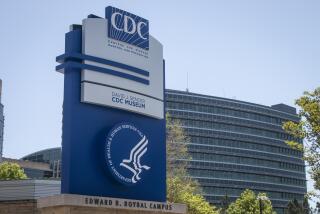AIDS WATCH : Clinical Depression
- Share via
It speaks volumes about the world AIDS epidemic that the annual International Conference on AIDS will henceforth be held only every two years. There is simply not enough medical progress to warrant annual meetings. And that indeed was the depressing bottom line of the 10th conference, which ended last week in Yokohama, Japan.
The participants confronted the sobering reality that there is no vaccine, no cure, no effective treatment--and that the epidemic is just reaching its explosive phase in Asia and Africa.
There were some glimmers of hope in Yokohama--discussion of promising new antiviral drugs, of possible gene therapies to combat the AIDS-causing virus and of recent success in using the drug AZT to prevent the virus from passing to the fetuses of infected pregnant women.
And the new director of the American Office of AIDS Research, Dr. William E. Paul, announced that the U.S. government would boost its allocation for basic research on AIDS by 20% next year by diverting money from unpromising clinical tests of drugs and vaccines.
Paul also promised new AIDS research, an area shamefully neglected for political reasons by the administrations of Ronald Reagan and George Bush.
Still there was little hope any of this could soon help millions of infected people worldwide. As one blunt Canadian AIDS worker put it last week, “We’re doing elegant molecular biology and nice clinical studies, and what we’re doing is irrelevant for 95% of the infected population.”
More to Read
Sign up for Essential California
The most important California stories and recommendations in your inbox every morning.
You may occasionally receive promotional content from the Los Angeles Times.









